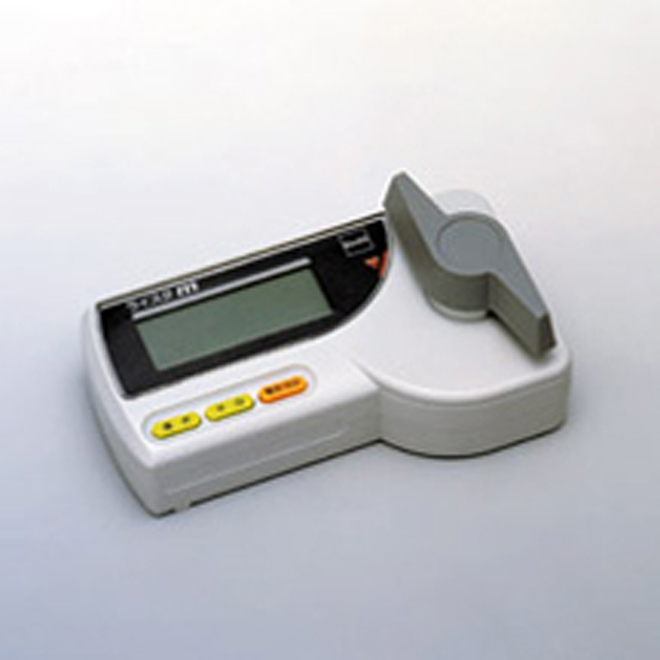Moisture Meter Buying Overview: What to Seek in High-Quality Instruments
Moisture Meter Buying Overview: What to Seek in High-Quality Instruments
Blog Article
The Ultimate Overview to Moisture Meters: A Comprehensive Summary and Exactly How They Can Save You Money
Dampness meters serve as essential devices in finding and keeping track of moisture content in products, assisting in avoiding costly problems and guaranteeing the high quality of products. Recognizing the subtleties of different kinds of wetness meters, their applications, and the prospective cost-saving advantages they supply can be a game-changer for experts and services alike.
Sorts Of Wetness Meters
One usual type is the pin-type wetness meter, which determines the electric resistance between two pins placed right into a product. Pinless dampness meters, on the other hand, use electro-magnetic sensor plates to check a larger location without creating damage to the product's surface area.

Infrared dampness meters gauge the thermal properties of a material to determine its dampness material non-invasively, making them valuable for applications where pin or pinless meters may not be suitable. Recognizing the different types of dampness meters offered can assist industries select the most appropriate device for their particular wetness measurement requirements.

Advantages of Utilizing Dampness Meters
Moisture meters provide vital advantages in properly keeping an eye on and analyzing dampness levels in diverse products and environments (Moisture Meter). One of the main advantages of utilizing dampness meters is the avoidance of possible damage brought on by excess wetness. By discovering and attending to high wetness degrees early, dampness meters aid to stop mold development, rot, and architectural damages in structures, saving both time and cash on repair services. Additionally, wetness meters aid in guaranteeing the quality of materials during building or manufacturing procedures. By accurately determining moisture material, these devices help keep the stability of wood, drywall, concrete, and other materials, lowering the threat of failings or issues.
In addition, making use of wetness meters can lead to increased energy performance. In agricultural settings, dampness meters play an important function in enhancing crop yields by making it possible for farmers to monitor soil dampness degrees and make notified irrigation decisions.
Exactly How to Choose the Right Moisture Meter
When picking a wetness meter, it's crucial to ensure that the meter is suitable for the specific material you will certainly be testing. Different products have differing electrical residential or commercial properties that can influence wetness analyses, so selecting a meter our website developed for your product is crucial for precise outcomes. By meticulously reviewing these aspects, you can pick a moisture meter that satisfies your needs and provides precise wetness dimensions for your jobs.
Correct Strategies for Moisture Meter Use

Price Cost Savings Via Wetness Meter Applications
How can the tactical application of wetness meters bring about considerable cost savings across different industries? Dampness meters play a crucial function in expense financial savings by stopping possible damage and making certain top quality control in various fields. In the farming industry, wetness meters aid in identifying the optimum time for collecting plants, protecting against excess or over-drying moisture that can influence the end product's quality. This precise tracking helps farmers avoid unnecessary losses and maximize their yield.
Similarly, in building and construction, dampness meters assist prevent expensive problems by identifying moisture levels in building materials, such as wood or concrete, which can bring about architectural problems otherwise dealt with quickly. By identifying trouble locations beforehand, professionals can take corrective steps to avoid extensive repair services or replacements, eventually saving money and time.
Moreover, in the food processing sector, moisture meters are necessary for keeping track of item quality and ensuring compliance with safety laws. By accurately gauging wetness material in food items, suppliers can avoid spoilage, keep pop over here quality, and decrease waste, causing significant cost savings. In general, the strategic application of dampness meters is an important financial investment that can lead to considerable cost decreases and improved efficiency across different industries.
Verdict
Finally, dampness meters are useful devices for gauging and detecting moisture levels in different materials. By making use of the appropriate wetness meter and complying with proper strategies, individuals can successfully protect against expensive damages brought on by excess wetness. Buying a quality dampness meter can result in considerable cost savings over time by determining potential problems beforehand and allowing punctual remediation. Inevitably, moisture meters are important tools for preserving the stability and durability of frameworks and materials.
Wetness meters serve as indispensable devices in discovering and checking moisture web content in materials, aiding in stopping expensive damages and ensuring the quality of items. Infrared moisture meters gauge the thermal properties of a product to identify its wetness web content non-invasively, making them beneficial for applications where pin or pinless meters might not be appropriate.Dampness meters use very useful advantages in accurately monitoring and assessing dampness degrees in varied materials and environments. In agricultural setups, dampness meters play an important role in optimizing plant returns by making it possible for farmers to keep track of dirt wetness levels and make notified watering choices.In final thought, dampness meters are beneficial devices for finding and gauging dampness degrees in numerous materials.
Report this page